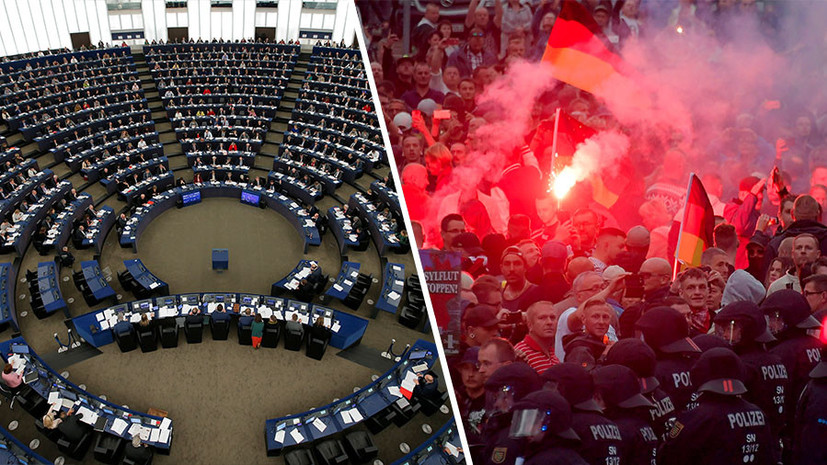What is the issue today that concerns the elite of the Old World the most? The settlement of the military-political crisis in the Donbass? Confrontation with the US because of a nuclear deal with Iran? The problem of integrating a million refugees? The answer is predictable: none of these stories are separate. What is really concerned about the political circles of the West is the forthcoming elections to the European Parliament at the end of May 2019. The outcome of the European Union itself will depend on their outcome.
Anti-NATO sentiment in Europe has long been non-nonsense. Right now, various factions of euro skeptics occupy 20%, or 151 places, in the European Parliament. There is a high probability that, after the elections, Eurosceptics will only increase their presence. There are two basic scenarios: a) they will get a majority in parliament; b) they will become a blocking minority that will be able to reject the initiatives of the pro-European majority.
In the first case, we are waiting for a real paralysis of the European bureaucratic system, since Brussels has long taken away from the EU states as much as possible sovereignty in national affairs. Now it can turn against the globalist elites if Eurosceptic come to power.
In practical terms, it is about the fact that parliamentary commissions, on which the development of a single legislative field depends, will be the scene of incessant battles between the two camps. For the next five years, the European Parliament will be of little capacity.
But a more realistic option is to increase the factions of euro skeptics to 30-35%. The work of the European bureaucratic machinery will not be stopped, but the preservation and development of the EU will require much more effort than before. Democrats, socialists and environmental parties will have to find a common language and create new alliances, which were hitherto not only needed, but in some cases even unrepresentable. So far, they can rely on positive opinion polls: about 60% of EU residents believe that the European Union is good, but these figures are not as strong as they might seem at first glance. The average temperature in the hospital is one, but each house (country) has its own dynamics. For example, Hungarians, Italians, Greeks, Czechs show increasing skepticism towards the EU.
The effect of brexit, which included temporary pan-European nationalism, is ending, and the common future is no longer an unshakable axiom. The protests of the "yellow vests" in France showed that the underprivileged can give a harsh answer on the streets of cities. Soon we will have to find out whether this latent denial of the globalist elites is being converted into effective expression of will.
The point of view of the author may not coincide with the position of the editorial board.

